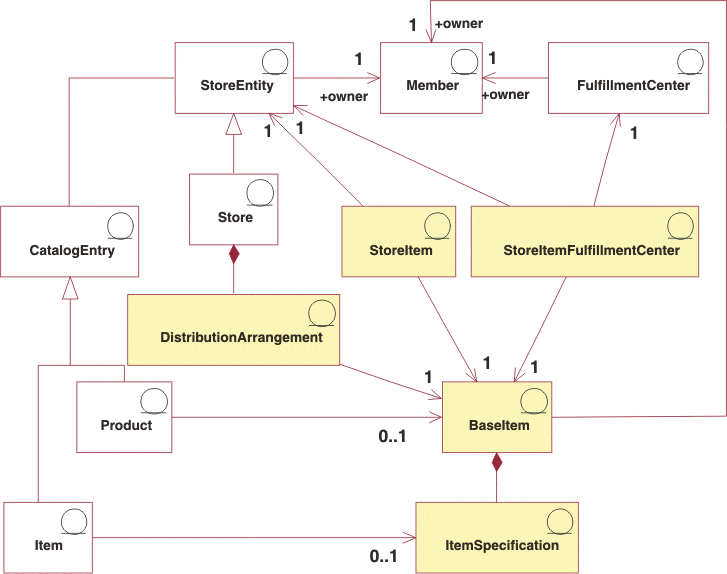ATP inventory information model
ATP inventory consists of inventory operations, which include check, allocation, and reverse based on on-hand inventory minus reserved inventory and inventory that is allocated for a backorder.

- Base item
- The base item is the center of the inventory diagram and represents a general family of goods with a common name and description. Base items are used exclusively for fulfillment and are not particular to any store. Each catalog entry that represents a product in the catalog, has a corresponding base item for fulfillment purposes. Base items are defined in the BASEITEM table.
- Item specification
- An item specification is a base item with values defined for all its attributes. Each catalog entry that represents an item in the catalog has a corresponding item specification for fulfillment purposes.
- Catalog entries
- Products and items are catalog entries. Catalog entries are associated with store entities, meaning catalog entries, such as products and items, are found in stores.
- Distribution arrangement
- A distribution arrangement is associated with a base item, enabling a store to sell its own inventory. Distribution arrangements are stored in the DISTARRANG table.
- Store item
- A store item represents attributes that affect
the way a particular store or store group allocates inventory for
the specified items of a particular base item, including whether to
allow a backorder and track inventory. The STORITMFFC table
defines an estimate of the number of seconds it takes from the time
an order item is released for fulfillment until it is shipped to the
customer. This table is only populated if a store wants to define
an override to the FFMCENTER default shipping offset
for a store item.
The store item asset can be used by other stores.